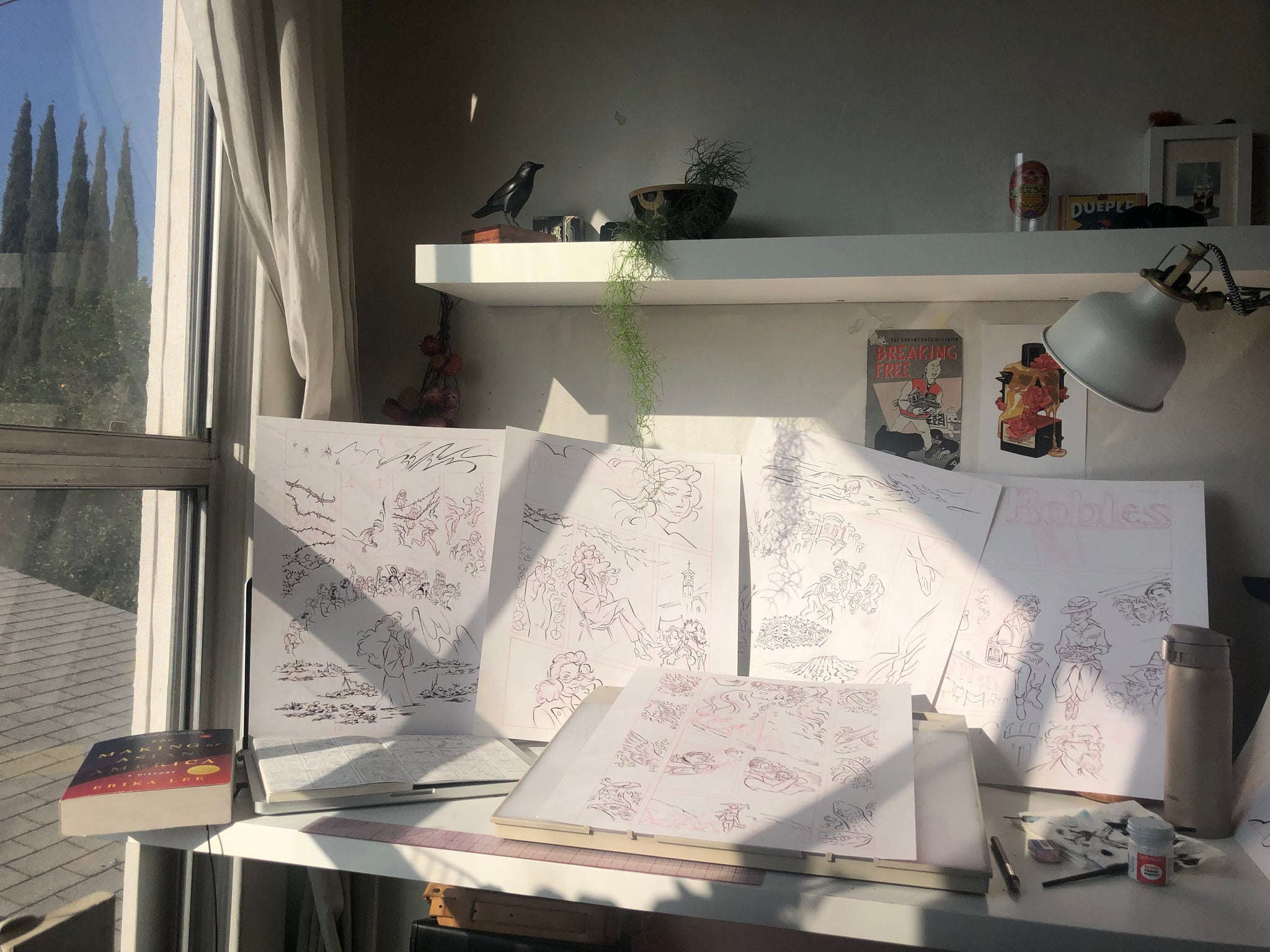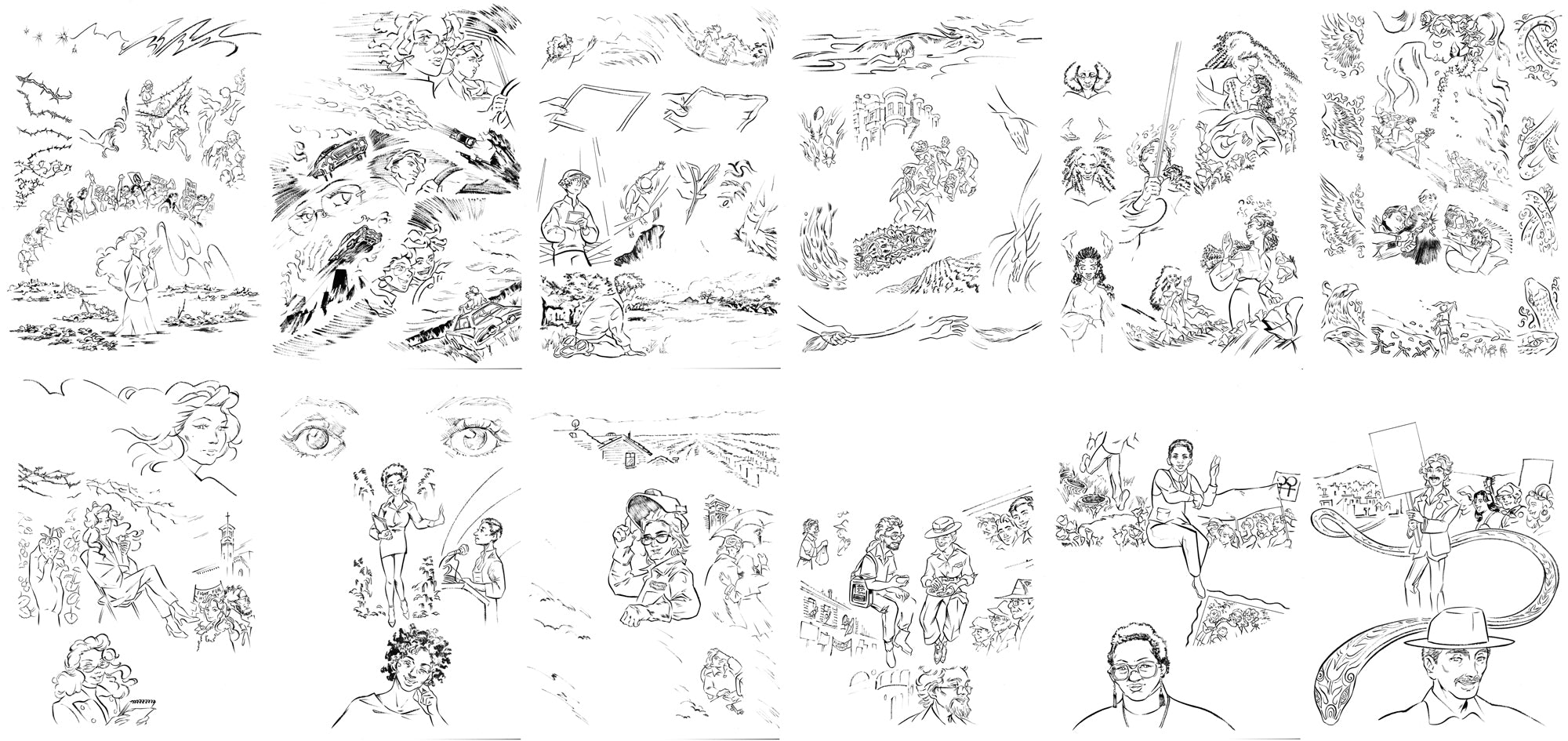Back in October I talked a bit about quotes that I keep in a Passport TN insert, along with the recurring themes and patterns of thought which emerge between those copied-down lines. This month, let’s flip that thought. Imagine yourself to be a single word, in a sentence still being written, in a book already full of ink. It’s neither possible to read and understand every sentence that came before, nor to know whether you rhyme or resonate with any of the words to come. You’re one word. You might know what you’re about, at most. But even within that limited knowledge, maybe it’s sometimes possible to sense what the sentence you’re in is getting at. Maybe you can feel the momentum of the paragraph as it gathers itself up into something meaningful.
All right, release yourself from this metaphor. But remember the prickle of recognition. Have you felt it before, in real life? Where were you, and what were you doing?
I was stepping off a cold bus into a colder city night on the way to pick up some piping-hot tonkotsu for dinner. This was a few weeks ago; I was in San Francisco half on vacation, half on business related to The City of Poets, a public art comics poster series I made for the SF Arts Commission. The basic concept was to use comic posters to highlight six poets of color who have a connection to SF: Janice Mirikitani, June Jordan, Victor Martinez, Al Robles, Pat Parker and Alejandro Murguia. All of these poets combined art and activism to call out injustice and to uplift and protect their communities. I spent the summer researching and interpreting their poetry and work into comics, which in the fall were printed as 45 x 65” posters and installed in the bus stops along Market Street.


Now, when my project manager and I discussed the placement of the posters on the bus route, I’d arranged them in a numerical order vaguely by theme/contrast. Being unfamiliar with the city, I didn't know exactly which posters would go to which stops. Seeing the one in the stop on the way to the restaurant shocked me and here's why: Al Robles was a key member of the Asian American writer collective Kearny Street Workshop when it first got off the ground in the 1970s. He is also closely associated with the I-Hotel, which until its demolition housed many low-income Filipino elders who had immigrated to the US in the 1920s-30s. It's their lives and memories which Al Robles memorialized in his poetry and their right to housing and basic respect which he fought for as an activist. KSW and the I-Hotel were both on Kearny Street. The bus shelter I saw was just off Kearny. To me, seeing this, it was an indescribable feeling. It’s like he went home.


I’ve written elsewhere about these comics, this anecdote and Al Robles , so I apologize to anyone who’s heard some version of this already. I recount it to you, people of pen and paper, because you may understand how it feels to fill your days and pages writing and creating and still wonder what good it does. This is not to be mistaken for false modesty or low self-worth. I know the meaning of the one word I am. But I am afraid to soothe myself with being an artist, to be too satisfied with what I make. I am afraid to think only about the posters installed in the bus shelters on the street, and not about the people huddled up next to it for lack of a safer place to sleep. Our world is fractured in so many ways, and art cannot uncrack that, cannot write what’s broken back into a whole, smooth piece, not by itself. Anyone who says otherwise is selling you something. I chose the poet-activists in this series because they knew the following well (and others have said it more beautifully, intelligently, or bluntly): art is not a substitute for action. But it can point us towards action. Like the tensing of muscles in a crouch just before a leap, it can prepare us for a difficult and daring maneuver: to see what needs to change and to imagine other possibilities, better worlds. As Mirikitani wrote:
We survive by hearing.
We speak to each other.
offering choices
to live, to dream
to extend our hands, to dance
to cringe, to quiver
to kiss, to not kiss.
I dare you
dare you
to love, to dream
to kiss.
I will close with this thought, which is just to allow yourself to be changed by words. Seek out ones of substance and go out of your way to deeply investigate ones of different experiences. Allow these words to pick you up, carry you gently, knock you down. See, after they’ve spun you around by the shoulders, which way you end up facing. Nothing tugs at our heartstrings without indicating a direction. If you decide to walk that path, there’s a good chance you won’t walk alone.
—
Text and photos by: A.C. Esguerra
Where to find A.C. : instagram @blueludebar
Read other stories by A.C. : Here
- Notes:
-With the idea of “art orienting one toward action”, I’m paraphrasing the last paragraph of this interview with poet Kaveh Akbar
- The poetry quoted is by Janice Mirikitani, from “Who Is Singing This Song?”, Shedding Silence, 1987.
-For more information on City of Poets, including the poets’ books referenced, historical research and further resources, visit: HERE


This is inspiring- thank you for sharing your thoughts and feelings.